
The science of sleep
Understanding the sleep stages 😴

Quick summary 💤
1️⃣ What are the five sleep stages?: the five stages are Awake/Alert, Light Sleep, Deeper Sleep, Deepest Non-REM Sleep, and REM Sleep. Each one has its own unique functions
2️⃣ Awake/Alert and Light Sleep stages: the Awake/Alert stage marks the sleep cycle's onset as the brain begins to relax and in the Light Sleep stage, your breathing becomes more regular
3️⃣ Deeper Sleep and Deepest non-REM Sleep stages: the Deeper Sleep stage causes a drop in heart rate and temperature, and is important for processing daily information and events, while the Deepest non-REM Sleep stage is difficult to wake from, potentially causing fogginess upon waking up ☀️
4️⃣ REM Sleep stage: REM, standing for rapid eye movement, sleep is the dream-associated stage of sleep, characterized by brain waves similar to wakefulness. It typically begins about 90 minutes after falling asleep, with the initial REM cycle lasting around 10 minutes and extending in duration as sleep goes on 😴
--------------------------------------------
As you probably know, sleep is very important to our mental and physical health 💚 But did you know there are actually different stages we go through when we sleep? Let’s break it down👇
An overview
There are 5️⃣ different stages of sleep that we experience every night:
1️⃣ awake/alert
2️⃣ light sleep
3️⃣ deeper sleep
4️⃣ deepest non-REM sleep
5️⃣ REM sleep
Each stage is important in its own way, and has its own function 😴Altogether, these sleep stages form the sleep cycle 🌀The sleep cycle lasts around 90-110 minutes and repeats 4-5 times throughout the night 🔁
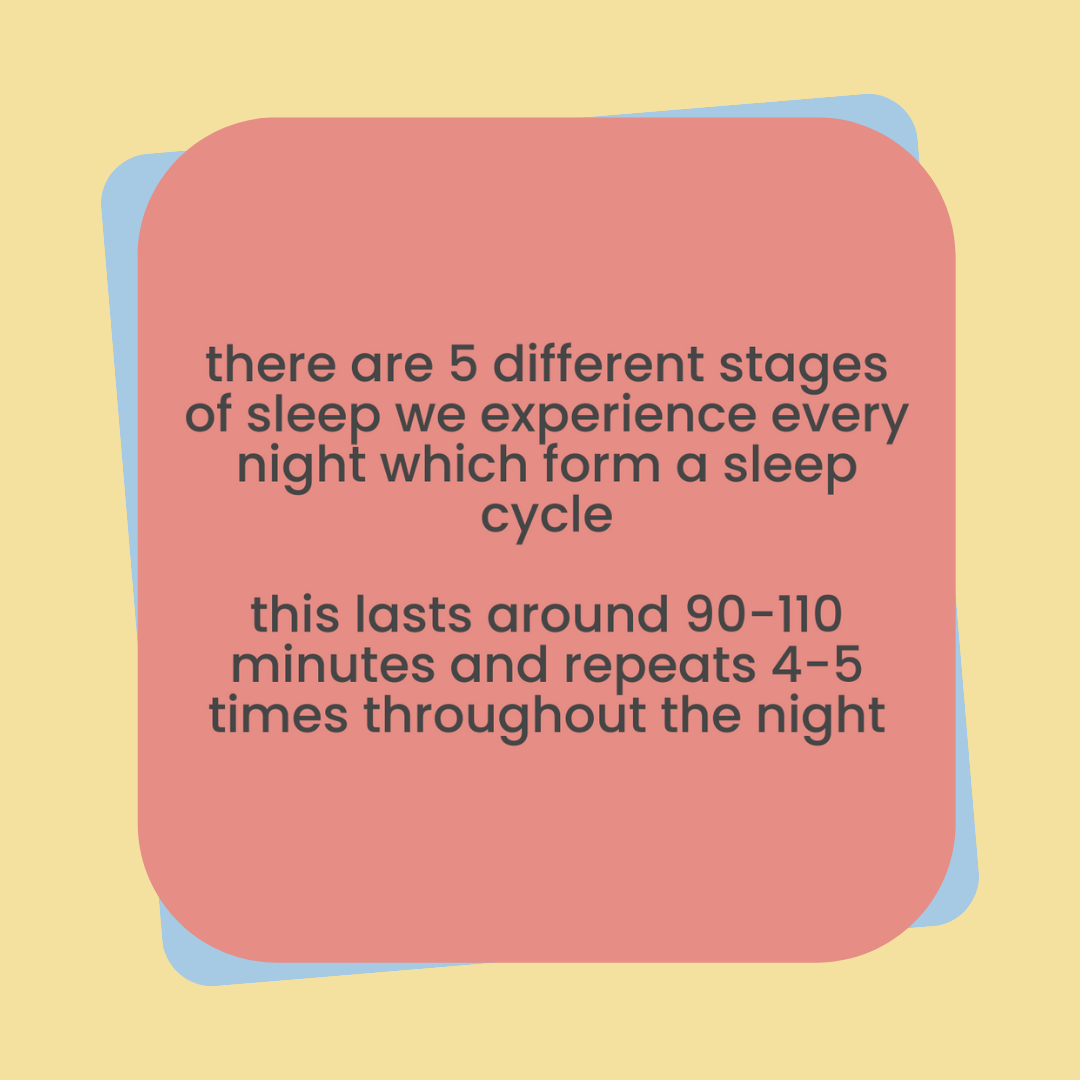
Keep scrolling to Learn about each stage in more detail 👇
1️⃣ Awake/Alert
This is the first stage. In this stage, your brain is beginning to relax.
You may begin this stage with your eyes open but changes in brain waves cause you to become sleepier and close your eyes 😌 Even when your eyes are closed, you can still be alert during this time 💡
Before this stage, it’s important to have a good sleeping environment to make the most of this relaxing time, allowing you to fall asleep 💛
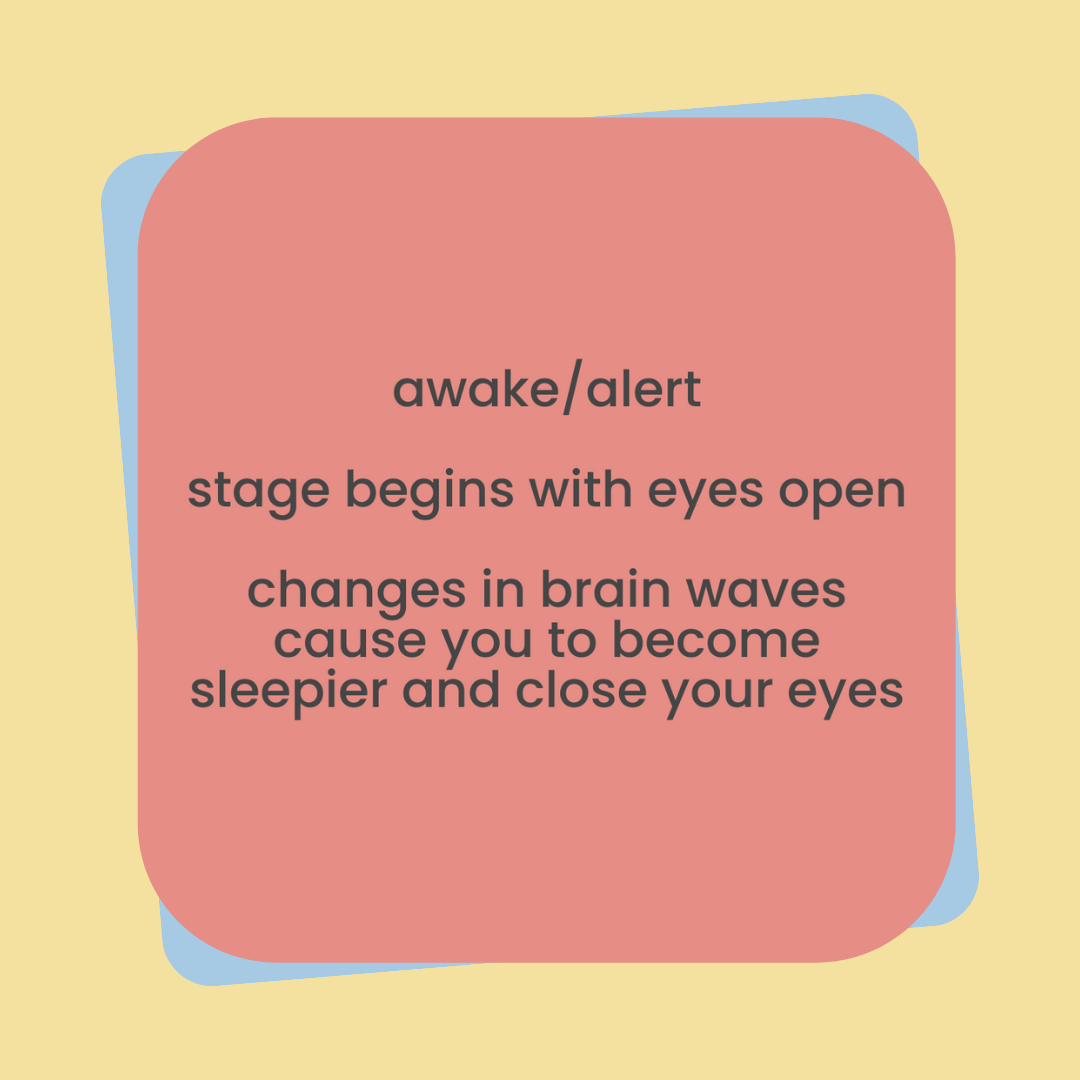
2️⃣ Light sleep
This is the lightest stage of sleep and happens just after you fall asleep 💤
This stage lasts between 1 and 5 minutes ⏲️and makes up around 5% of your total sleep time.
During this stage, your breathing becomes more regular 🌬️and muscle tone is maintained (meaning that your muscles still have some tension) 💪
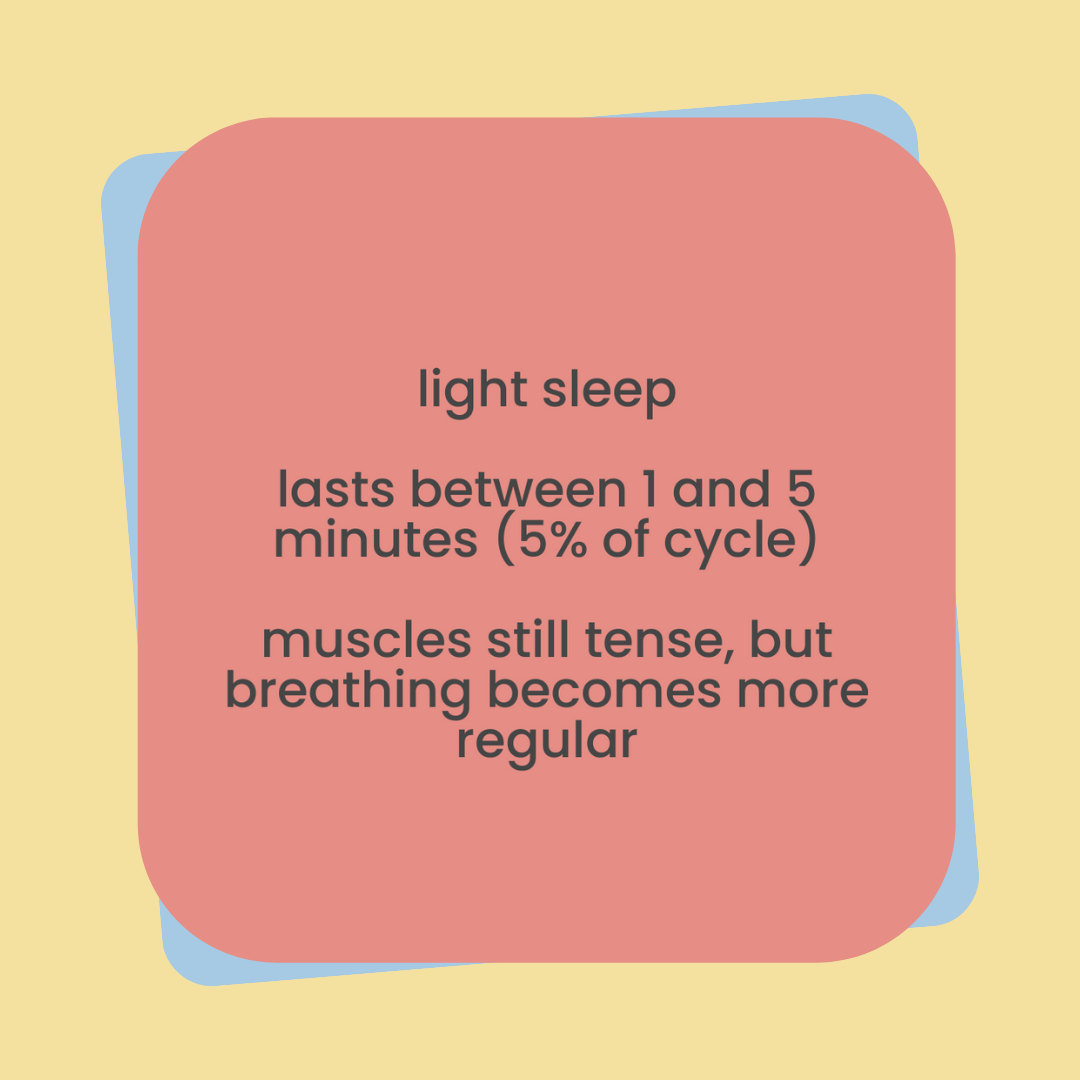
3️⃣ Deeper sleep
This deeper sleep is very important in “memory consolidation" – this essentially means it’s a time when information and events of the day are processed by your brain to form memories 💭🧠
This makes up the largest percentage of the sleep cycle at 45%. The first part of this stage lasts around 25 minutes, before moving onto even deeper sleep 🙌 but this length increases with each cycle through the night 🔁📈
In this stage, your heart rate and temperature drops 📉 And things such as teeth grinding (bruxism) can happen 🦷
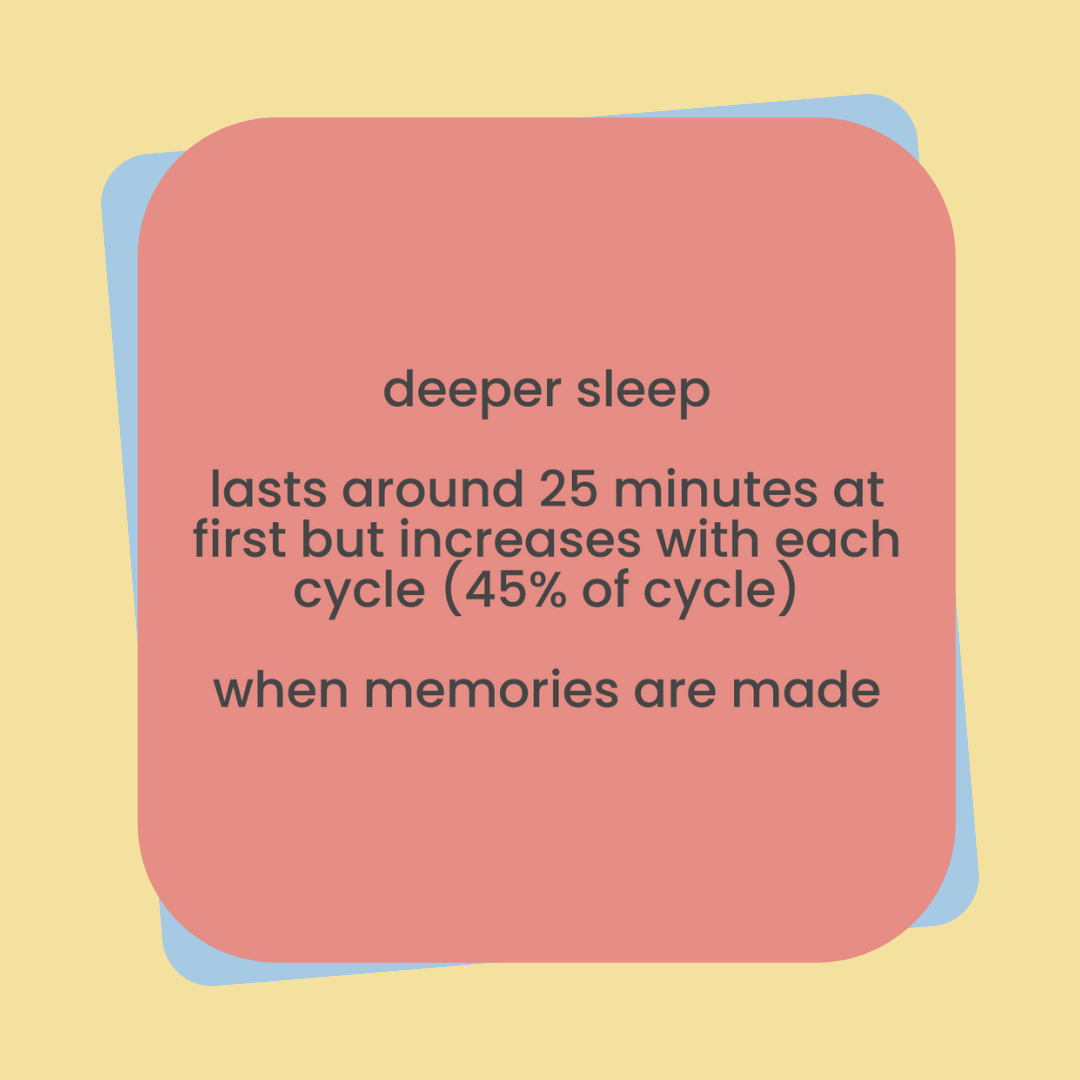
4️⃣ Deepest non-REM sleep
This is the deepest part of sleep that is not classed as REM (rapid eye movement) sleep – we’ll get to that soon 👀 It makes up about 25% of your sleep, but as you get older, you tend to spend less time in this stage, and more time in deeper sleep.
This is the stage where it’s most difficult to wake someone up, and even very loud noises may not wake them 🎆If woken up from this stage, you may feel some fogginess which can cause a temporary decrease in mental performance for 30-60 minutes 😶🌫️ This might also be why some people feel groggy and confused when woken up early 🤔
This is a very important stage of sleep 💯as it’s responsible for repairing and regrowing tissues, building bone and muscle, and strengthening the immune system ✨This is also the stage when sleepwalking, night terrors, and bedwetting could happen 🌙
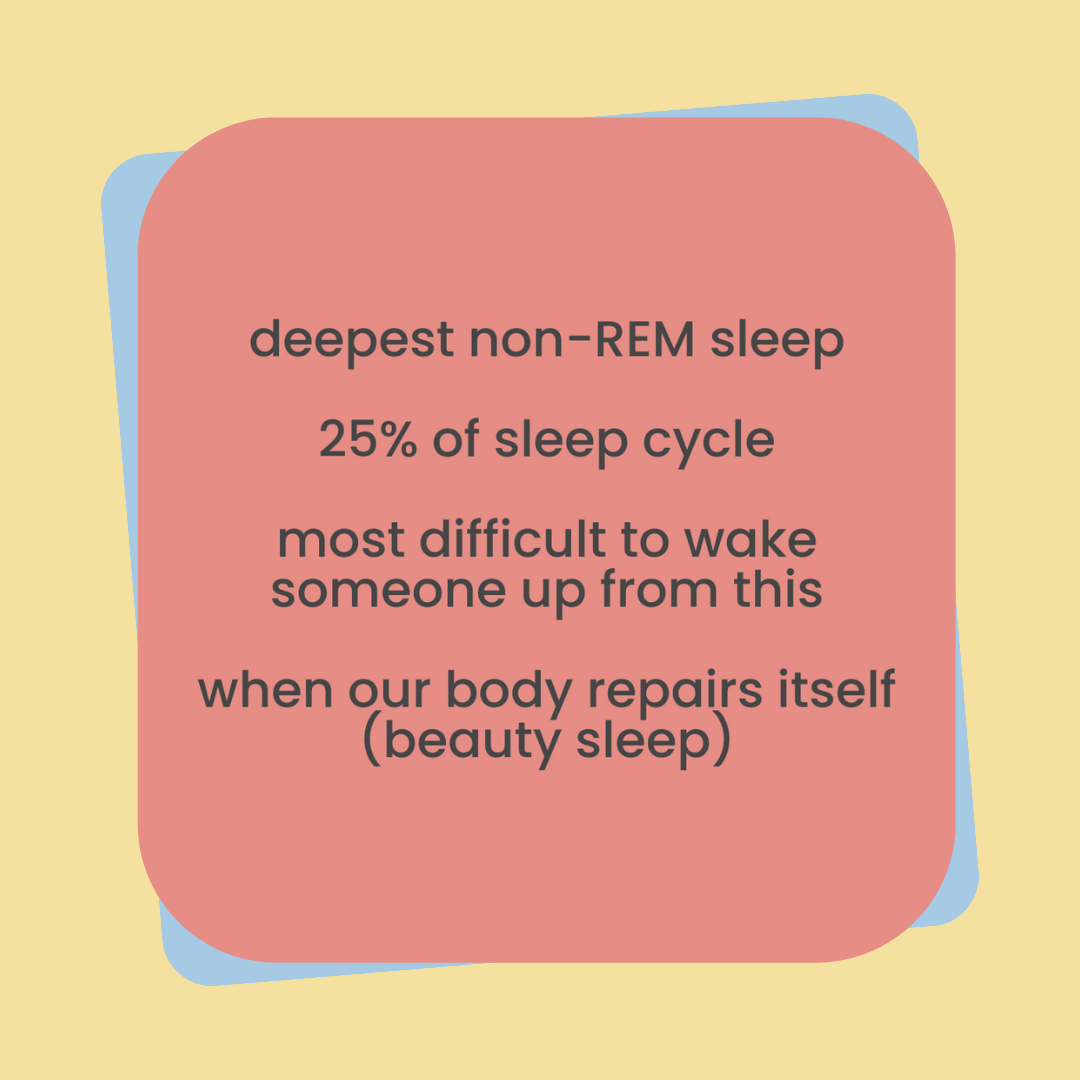
5️⃣ REM sleep
REM stands for “rapid eye movement” and is the stage of sleep associated with dreaming 🌈 It makes up about 25% of sleep and is not considered to be a restful stage 🙅
The brain waves of someone in REM sleep are similar to someone who is awake 👀 However, in REM sleep, muscles are atonic (which means not tense) and don’t move🧍The exceptions to this are the muscles of eye movement, and the muscles of breathing – during this stage, your breathing may become irregular and more erratic 🌬️
REM sleep is when dreaming and nightmares happen 💭 It is common to wake up randomly in the morning during an episode of REM sleep 🌞
REM sleep usually begins around 90 minutes after you fall asleep 😴The first cycle of REM sleep lasts around 10 minutes, and increases in length throughout each cycle 🌀
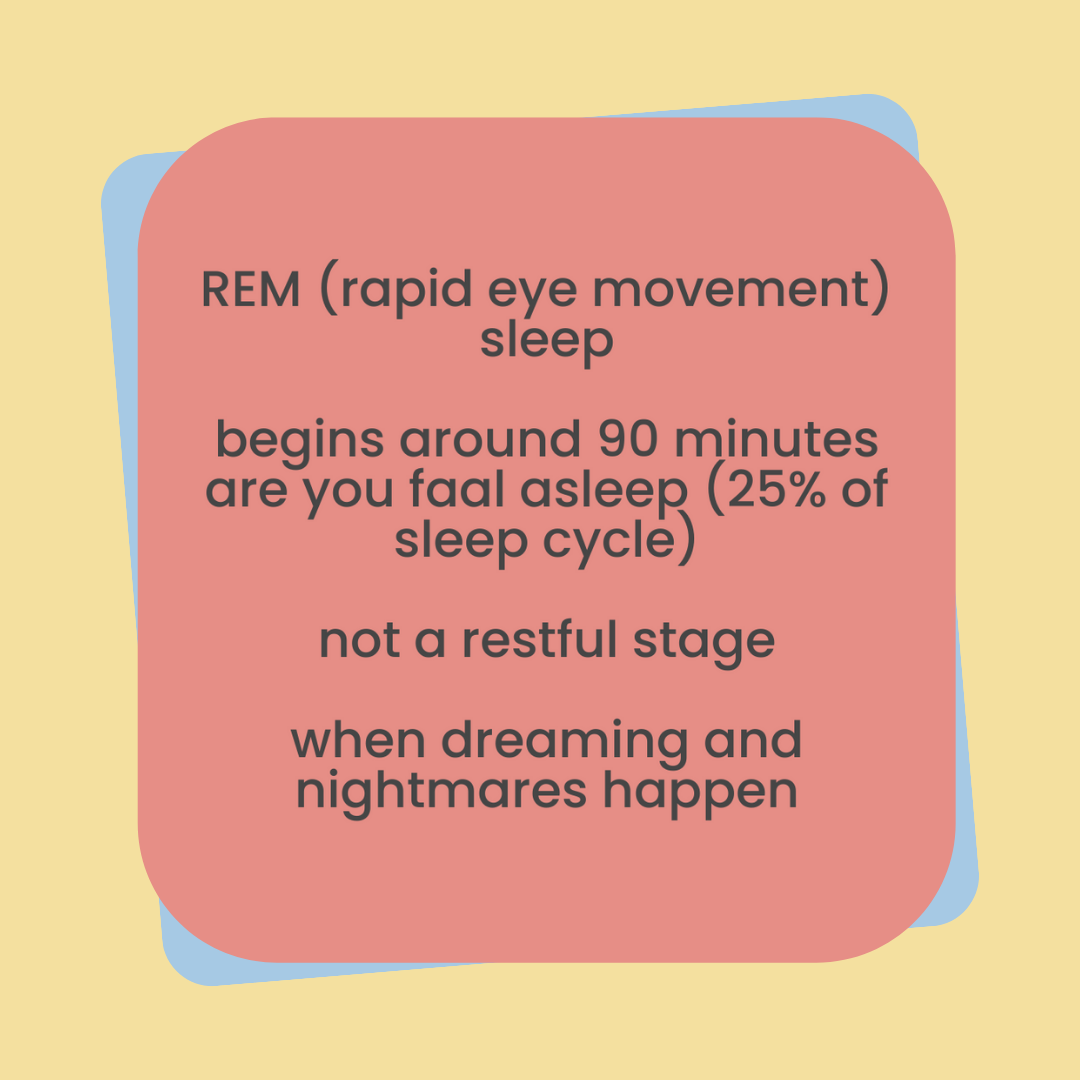
Hope this has helped you get to grips with the sleep stages, and how these can impact your body. luna’s experts have also put together some content about how to improve your sleep in Learn – feel free to check it out 💛

